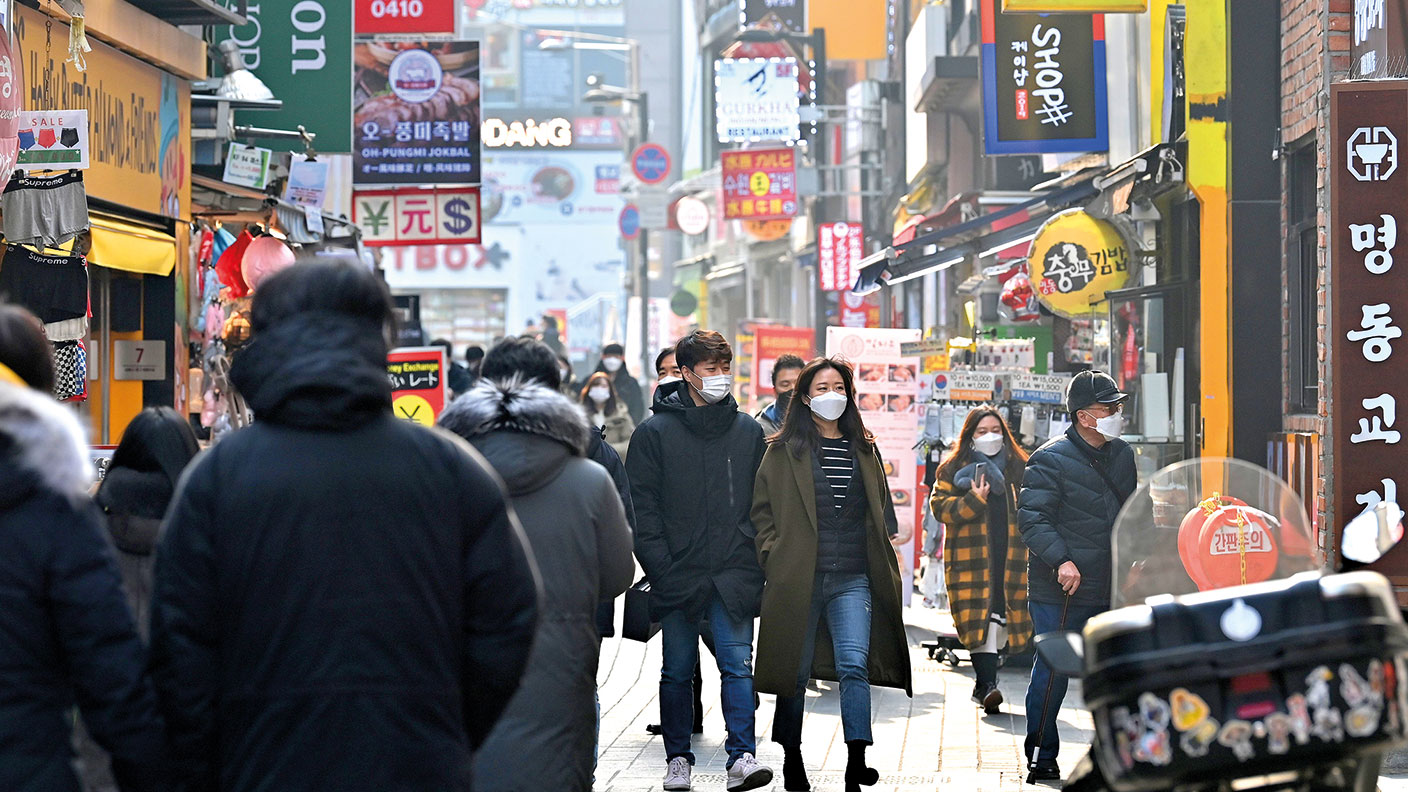South Korea’s economy shrugs off the pandemic
South Korea's GDP rose by 1.6% in the first quarter to surpass its level of late 2019. Growth for the full year could hit 4%.

Get the latest financial news, insights and expert analysis from our award-winning MoneyWeek team, to help you understand what really matters when it comes to your finances.
You are now subscribed
Your newsletter sign-up was successful
Want to add more newsletters?

Twice daily
MoneyWeek
Get the latest financial news, insights and expert analysis from our award-winning MoneyWeek team, to help you understand what really matters when it comes to your finances.

Four times a week
Look After My Bills
Sign up to our free money-saving newsletter, filled with the latest news and expert advice to help you find the best tips and deals for managing your bills. Start saving today!
South Korean retail investors have declared war against short sellers, says Youkyung Lee on Bloomberg. The country this week ended the world’s longest pandemic-era ban on short-selling, which had been in place since March last year.
The ban helped the local Kospi index soar 27% last year, the strongest showing from any major world market. Retail investors have been piling in, with 95.5trn won (£62bn) in net buying since the ban was introduced.
Individual traders now make up more than three-quarters of the Kospi’s daily trading volume. Fearing that short sellers will now destroy their gains, coalitions of investors have said they will inflict a GameStop-style rout on short-sellers if the market takes a tumble.
MoneyWeek
Subscribe to MoneyWeek today and get your first six magazine issues absolutely FREE

Sign up to Money Morning
Don't miss the latest investment and personal finances news, market analysis, plus money-saving tips with our free twice-daily newsletter
Don't miss the latest investment and personal finances news, market analysis, plus money-saving tips with our free twice-daily newsletter
GDP rose by 1.6% in the first quarter to eclipse its level of late 2019, says Robert Carnell for ING Think. Growth for the year as a whole could now hit 4%. Strong global electronics demand has been a boon for the home of Samsung. The country is considered a bellwether for global trade. Exports have remained strong amid Chinese demand; US and European reopening should now deliver another boost. South Korea has done an excellent job of controlling the virus but its vaccine rollout has been very slow. The chaos in India is a reminder that sudden reversals of fortune are still possible during this pandemic.
Despite high incomes, the country remains classified as an emerging market. Indeed, Korean shares make up 13% of the MSCI EM index, more than India or Brazil.
On a cyclically adjusted price/earnings ratio of 18.1 the local market is at the cheaper end of global valuations. That partly reflects a “chaebol discount” – the country’s corporate giants have long been plagued by doubts about the quality of corporate governance.
Get the latest financial news, insights and expert analysis from our award-winning MoneyWeek team, to help you understand what really matters when it comes to your finances.
Alex is an investment writer who has been contributing to MoneyWeek since 2015. He has been the magazine’s markets editor since 2019.
Alex has a passion for demystifying the often arcane world of finance for a general readership. While financial media tends to focus compulsively on the latest trend, the best opportunities can lie forgotten elsewhere.
He is especially interested in European equities – where his fluent French helps him to cover the continent’s largest bourse – and emerging markets, where his experience living in Beijing, and conversational Chinese, prove useful.
Hailing from Leeds, he studied Philosophy, Politics and Economics at the University of Oxford. He also holds a Master of Public Health from the University of Manchester.
-
 Can mining stocks deliver golden gains?
Can mining stocks deliver golden gains?With gold and silver prices having outperformed the stock markets last year, mining stocks can be an effective, if volatile, means of gaining exposure
-
 8 ways the ‘sandwich generation’ can protect wealth
8 ways the ‘sandwich generation’ can protect wealthPeople squeezed between caring for ageing parents and adult children or younger grandchildren – known as the ‘sandwich generation’ – are at risk of neglecting their own financial planning. Here’s how to protect yourself and your loved ones’ wealth.